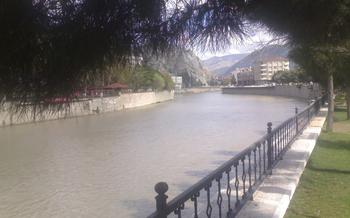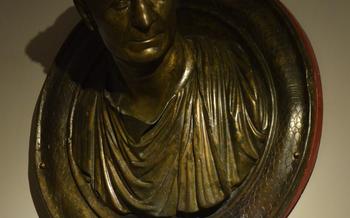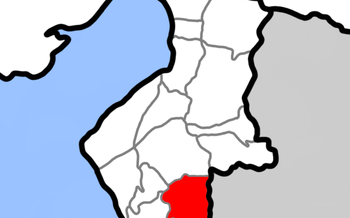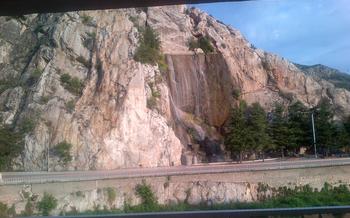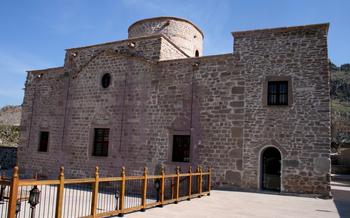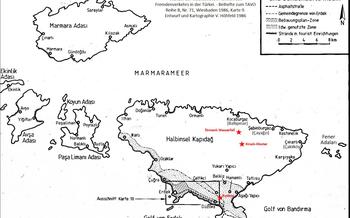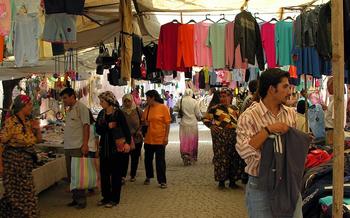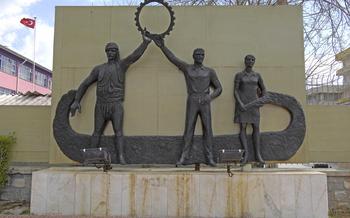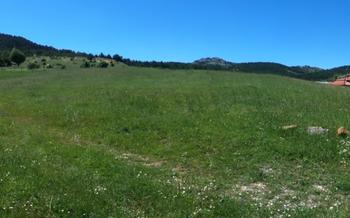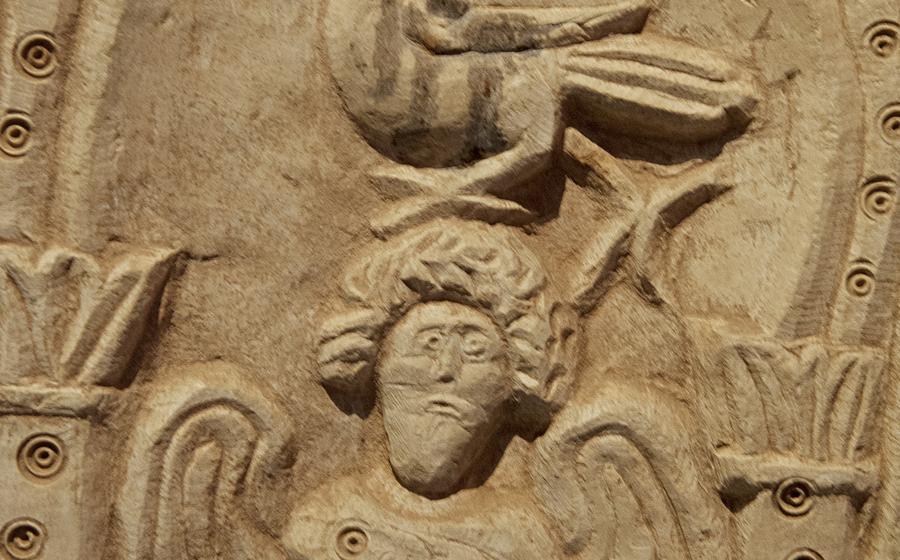
Elmalı Museum
- Elmalı Museum: A Journey Through History
- Unveiling the Past: The Archaeological Treasures
- Exploring Anatolian Civilizations
- The Hellenistic and Roman Legacy
- Byzantine Art and Architecture
- Ottoman Heritage: A Glimpse into the Past
- Ethnographic Treasures: Daily Life in Elmalı
- The Museum's Educational Programs
- Exhibitions and Special Events
- The Museum as a Cultural Hub
- Accessibility and Visitor Facilities
- Location and Transportation
- Accommodation and Dining Options
- Combining History with Nature
- Insider Tip: Secret Gems of the Museum
Elmalı Museum: A Journey Through History
Elmalı, nestled in the picturesque Taurus Mountains of Turkey's Antalya province, boasts a rich and diverse history that dates back to ancient times. The Elmalı Museum, housed in a beautifully restored Ottoman building, takes visitors on a captivating journey through the region's past, showcasing a remarkable collection of artifacts that span centuries and civilizations.
The museum's collection includes a diverse range of exhibits, from ancient pottery and tools to intricate Byzantine mosaics and Ottoman textiles, providing a comprehensive overview of the region's cultural heritage. Highlights include a stunning collection of Hellenistic sculptures, a rare Roman mosaic depicting a hunting scene, and a fascinating display of Ottoman coins and ceramics.
Practical information for visitors: - Opening hours: 8:30 am to 5:30 pm daily, except Mondays. - Admission fee: 10 Turkish lira for adults, 5 Turkish lira for students and children. - Guided tours are available in Turkish and English upon request. - The museum is wheelchair accessible and offers facilities for visitors with disabilities.
Unveiling the Past: The Archaeological Treasures
The Elmalı Museum is home to a remarkable collection of archaeological artifacts that provide a glimpse into the rich cultural heritage of Elmalı and the surrounding regions. These treasures include ancient pottery, tools, weapons, jewelry, and sculptures dating back to the Neolithic, Bronze, and Iron Ages.
Among the highlights of the collection are a rare Neolithic figurine of a goddess, a Bronze Age sword with intricate engravings, and an Iron Age helmet adorned with animal motifs. These artifacts offer valuable insights into the daily lives, beliefs, and artistic traditions of the region's earliest inhabitants.
The museum also houses an impressive collection of artifacts from the Hellenistic and Roman periods, including sculptures, coins, and inscriptions. These pieces reflect the influence of these powerful civilizations on the region, showcasing the artistic and cultural exchanges that took place during this time.
The archaeological collection at the Elmalı Museum is of immense significance, as it provides tangible evidence of the region's rich and diverse cultural heritage. These artifacts offer a unique opportunity to explore the development of civilizations in Anatolia and gain a deeper understanding of the region's past.
Exploring Anatolian Civilizations
The Elmalı Museum houses a remarkable collection of artifacts from the Neolithic, Bronze, and Iron Ages, providing a glimpse into the rich cultural heritage of Anatolia. These artifacts showcase the exceptional craftsmanship and artistry of the region's ancient inhabitants, revealing their ingenuity and creativity.
Among the highlights of the collection are intricately carved stone tools, finely crafted pottery, and exquisite jewelry, each piece a testament to the skill and artistry of the Anatolian people. Visitors can trace the evolution of civilizations in the region, from the early Neolithic settlements to the rise of powerful city-states in the Bronze and Iron Ages.
The museum's archaeological collection plays a vital role in archaeological research, contributing to our understanding of Anatolian history and culture. It offers a unique opportunity for visitors to learn about the diverse civilizations that flourished in this region, gaining insights into their way of life, beliefs, and artistic expressions.
The Hellenistic and Roman Legacy
Elmalı's strategic location made it a significant city during the Hellenistic and Roman periods. The museum's collection reflects this rich heritage, showcasing artifacts that provide a glimpse into the city's past.
Sculptures and Statues: Discover exquisitely crafted sculptures and statues that depict gods, goddesses, and mythical creatures. These works of art offer a testament to the artistic prowess of the Hellenistic and Roman periods.
Coins and Currency: Examine a collection of coins and currency used during these periods, providing insights into the economic and trade activities of Elmalı. The coins often bear the effigies of rulers and deities, shedding light on the political and religious landscape of the time.
Inscriptions and Epigraphs: Decipher ancient inscriptions and epigraphs that record historical events, religious practices, and everyday life. These inscriptions offer valuable firsthand accounts of the region's past, providing a glimpse into the minds and hearts of its inhabitants.
Mosaics and Frescoes: Admire the intricate mosaics and frescoes that adorned the floors and walls of Hellenistic and Roman buildings. These artworks depict scenes from mythology, history, and daily life, offering a vibrant glimpse into the artistic and cultural expressions of the period.
Byzantine Art and Architecture
Elmalı underwent a significant transformation during the Byzantine period, becoming a stronghold of Christianity in the region. The Elmalı Museum proudly showcases a remarkable collection of Byzantine art and architecture, offering visitors a glimpse into this rich cultural heritage.
One of the highlights of the museum's Byzantine collection is the stunning collection of mosaics and frescoes. These intricate artworks depict religious scenes, biblical figures, and historical events, providing a glimpse into the artistic and spiritual world of the Byzantine Empire.
The museum also houses architectural elements from Byzantine churches and monasteries, such as capitals, columns, and cornices. These fragments offer insights into the construction techniques and artistic styles of the period, allowing visitors to imagine the grandeur of Byzantine religious architecture.
The fusion of Byzantine and Anatolian artistic traditions is particularly evident in the museum's collection. The Byzantine artists incorporated local motifs and elements into their works, creating a unique and distinctive style that reflected the cultural diversity of the region.
Exploring the Byzantine art and architecture at the Elmalı Museum is a journey through time, allowing visitors to witness the grandeur and devotion of a bygone era. These artifacts provide a valuable glimpse into the rich cultural heritage of Elmalı and its role as a significant Byzantine center.
Ottoman Heritage: A Glimpse into the Past
Elmalı played a significant role during the Ottoman Empire, leaving behind a rich legacy that can be explored at the Elmalı Museum. Artifacts from this era showcase the exquisite craftsmanship and vibrant culture that flourished under Ottoman rule. Visitors can admire Ottoman-era coins, each one telling a story of economic and political power. Ceramics and textiles, adorned with intricate designs and vibrant colors, offer a glimpse into the artistic traditions of the time. Through these artifacts, the museum provides a window into Elmalı's contribution to the vast Ottoman Empire, highlighting the region's cultural significance and its enduring impact on Turkish history.
Ethnographic Treasures: Daily Life in Elmalı
The Elmalı Museum proudly showcases a rich collection of ethnographic artifacts that provide a glimpse into the daily life and customs of the region's inhabitants. Traditional clothing, intricately crafted jewelry, and household items offer visitors a tangible connection to the cultural heritage of Elmalı.
Elaborately embroidered garments, adorned with colorful motifs and intricate patterns, reflect the region's vibrant textile traditions. Visitors can admire the skill and artistry of local artisans as they explore the diverse range of costumes, each telling a story about the region's cultural identity.
Jewelry holds a special place in Elmalı's ethnographic collection. From delicate necklaces and earrings to ornate headdresses, these pieces showcase the region's rich craftsmanship and love of adornment. The intricate designs and symbolism associated with each piece offer insights into the beliefs and traditions of Elmalı's people.
Household items, ranging from intricately carved wooden utensils to beautifully woven rugs, provide a glimpse into the domestic life of the region. These artifacts reveal the ingenuity and resourcefulness of Elmalı's inhabitants as they adapted to their environment and created functional and aesthetically pleasing objects for everyday use.
Through its ethnographic collection, the Elmalı Museum invites visitors to embark on a journey into the past, discovering the traditions, customs, and daily lives of the people who have shaped the region's unique cultural identity. These artifacts serve as a testament to the enduring legacy of Elmalı's rich heritage and provide a valuable resource for researchers and enthusiasts alike.
The Museum's Educational Programs
The Elmalı Museum is not just a place to display artifacts; it is also a center for learning and cultural enrichment. The museum offers a variety of educational programs designed to engage visitors of all ages and backgrounds.
Guided tours led by knowledgeable museum staff provide visitors with in-depth insights into the museum's collection and the history of Elmalı. These tours are available in multiple languages and can be tailored to specific interests and requirements.
Workshops are conducted regularly at the museum, offering hands-on experiences and opportunities to learn about traditional crafts and techniques. Visitors can participate in workshops on pottery, weaving, calligraphy, and other traditional arts, gaining a deeper understanding of Anatolian culture and heritage.
The museum also collaborates with schools and universities to develop educational programs that align with their curricula. These programs aim to bring history and culture to life for students, fostering a sense of appreciation for their local heritage.
Through its educational initiatives, the Elmalı Museum plays a vital role in promoting cultural awareness, fostering a sense of community, and inspiring future generations to explore and preserve their cultural heritage.
Exhibitions and Special Events
The Elmalı Museum hosts a variety of temporary exhibitions and special events throughout the year, providing visitors with an opportunity to explore specific themes or artists in greater depth. These exhibitions often showcase the work of local and regional artists, shedding light on the vibrant contemporary art scene of Elmalı. Special events, such as lectures, concerts, and workshops, are also organized regularly, offering visitors a chance to engage with the museum's collection in a more interactive and immersive way. These events not only enhance the museum's educational mission but also foster a sense of community and cultural exchange within Elmalı. Visitors are encouraged to check the museum's website or social media pages for upcoming exhibitions and events to ensure they don't miss out on these special experiences.
The Museum as a Cultural Hub
The Elmalı Museum is not just a repository of historical artifacts; it also serves as a vibrant cultural hub that promotes dialogue, exchange, and creativity. Collaborations with other museums, art galleries, and cultural institutions help foster a dynamic and diverse cultural scene in Elmalı. These partnerships bring together artists, scholars, and enthusiasts from various fields, enriching the museum's offerings and creating a platform for cultural exploration and expression.
The museum regularly hosts temporary exhibitions that showcase specific themes or highlight the works of local and international artists. These exhibitions provide a fresh perspective on art, history, and culture, encouraging visitors to engage with contemporary artistic practices and diverse cultural narratives. Special events like lectures, concerts, and workshops further enhance the museum's role as a cultural hub. These events offer opportunities for visitors to engage with experts, participate in hands-on activities, and delve deeper into the museum's collection and its significance.
Through its educational programs, outreach initiatives, and collaborations, the Elmalı Museum plays a vital role in promoting cultural awareness, fostering a sense of community, and contributing to the region's cultural development. It serves as a catalyst for cultural exchange, encouraging dialogue and understanding between people from diverse backgrounds. By creating a welcoming and inclusive space for cultural exploration and expression, the Elmalı Museum becomes a vibrant center for creativity and innovation, enriching the lives of visitors and contributing to the cultural fabric of the region.
Accessibility and Visitor Facilities
The Elmalı Museum is committed to providing a welcoming and accessible environment for all visitors. The museum is wheelchair accessible, with ramps and elevators providing easy access to all floors. Visitors with disabilities can also take advantage of the museum's assistive listening devices and sign language interpreters upon request.
For those who prefer to explore the museum at their own pace, audio guides are available in multiple languages, including English, German, French, and Turkish. Visitors can rent these audio guides at the museum's front desk.
The museum also offers a variety of educational programs and workshops for visitors of all ages. Guided tours are available daily, and visitors can book private tours in advance. The museum also hosts regular lectures, concerts, and workshops, providing opportunities for visitors to engage with the museum's collection and learn more about the region's history and culture.
To ensure a pleasant and informative visit, the museum's staff is always ready to assist visitors with any questions or requests. Visitors can find helpful information on the museum's website, including opening hours, admission fees, and details on upcoming events and exhibitions.
With its commitment to accessibility, visitor-friendly facilities, and educational programs, the Elmalı Museum provides a welcoming and enriching experience for all visitors.
Location and Transportation
The Elmalı Museum is strategically situated in the heart of Elmalı, making it easily accessible to visitors. To reach the museum, you can take advantage of the convenient public transportation options available. Several bus routes stop nearby, providing a hassle-free commute. If you prefer the flexibility of driving, ample parking is available in the vicinity of the museum. Whether you choose to explore the city on foot, by bus, or by car, the Elmalı Museum is conveniently located for a seamless and enjoyable visit.
Accommodation and Dining Options
Elmalı offers a range of accommodation options to suit every budget and preference. From cozy guesthouses and boutique hotels to modern chain hotels, visitors can find comfortable and welcoming places to stay. For a truly authentic experience, consider staying in a traditional Ottoman-style house, many of which have been converted into charming guesthouses.
When it comes to dining, Elmalı is a foodie's paradise. The town is home to a variety of restaurants and cafes serving up delicious Turkish cuisine, from traditional kebabs and gözleme to fresh seafood and meze platters. Be sure to try some of the local specialties, such as Elmalı böreği (a flaky pastry filled with cheese and herbs) and Elmalı çorbası (a hearty lentil soup).
For budget-conscious travelers, there are several affordable options available. Several hostels and guesthouses offer dorm beds and private rooms at reasonable prices. There are also a number of local restaurants and cafes that serve up delicious and affordable meals.
To make the most of your stay in Elmalı, consider combining a visit to the museum with a culinary adventure. Start your day with a traditional Turkish breakfast of börek, simit (sesame bread), and çay (Turkish tea). After exploring the museum, indulge in a delicious lunch at one of the town's many restaurants. In the evening, relax with a cup of kahve (Turkish coffee) and a slice of baklava at a local cafe.
Combining History with Nature
Elmalı offers a harmonious blend of history and natural beauty. After immersing yourself in the treasures of the museum, take some time to explore the region's stunning natural landscapes. Embark on a hike through the lush forests, where you can admire cascading waterfalls and breathtaking panoramic views. Discover hidden coves and pristine beaches along the picturesque coastline. Breathe in the fresh air and marvel at the diverse flora and fauna that call this region home. Whether you prefer leisurely walks or challenging treks, Elmalı has something to offer every nature enthusiast. Combine your visit to the museum with outdoor adventures to create a well-rounded and unforgettable experience.
Insider Tip: Secret Gems of the Museum
Mosaic Masterpiece: Look for the intricate Byzantine mosaic depicting a serene forest scene. Its vibrant colors and detailed craftsmanship are truly mesmerizing.
Hidden Sculpture: In a secluded corner, discover a beautifully preserved Roman statue of a mythical creature. Its intricate carvings and expressive features reveal the skill of ancient sculptors.
Ottoman Treasure: Among the Ottoman artifacts, don't miss the exquisite jewelry box adorned with intricate enamel work and precious gemstones. It's a testament to the opulence of the Ottoman court.
Bronze Age Beauty: Seek out the delicate bronze figurine of a dancing woman from the Bronze Age. Its graceful pose and intricate details provide a glimpse into ancient Anatolian artistry.
Ethnographic Delight: In the ethnographic section, find a beautifully woven carpet with vibrant colors and intricate patterns. It's a true representation of the region's rich textile traditions.
By exploring these hidden gems, you'll gain a deeper appreciation for the museum's diverse collection and the region's rich cultural heritage. Remember to keep your eyes peeled and let curiosity guide your exploration.
